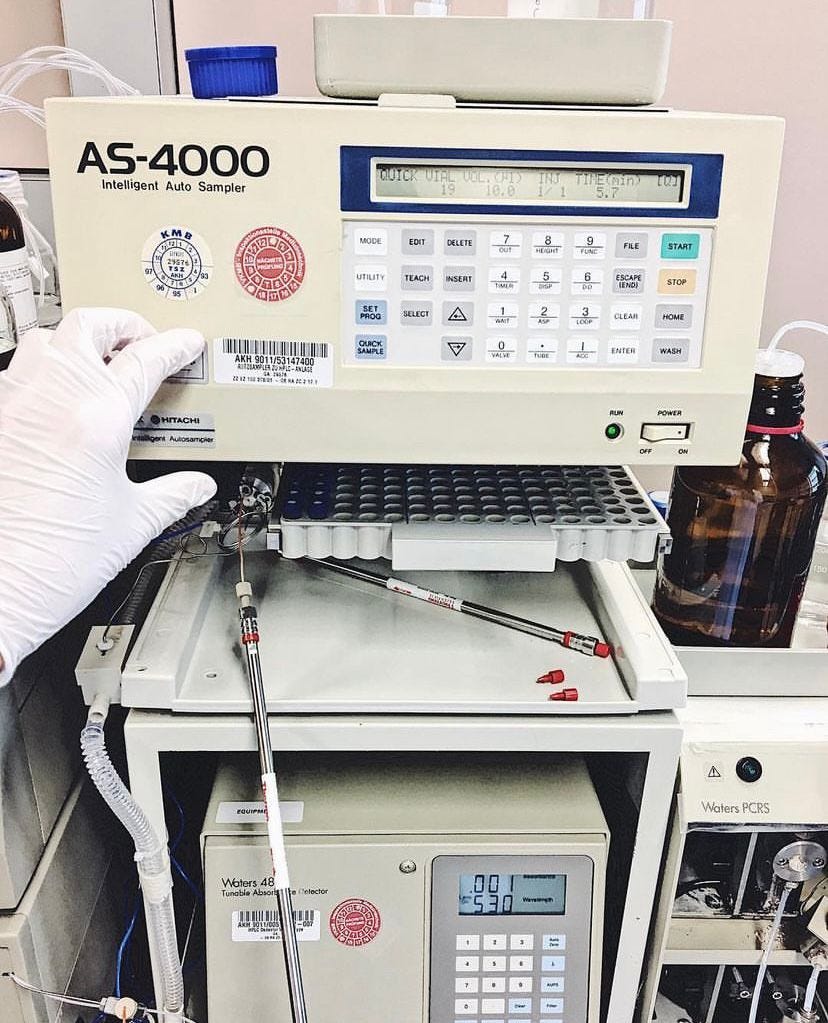What can you do with that PhD? 🤷♂️ Chapter #1
Exploring the World of Field Application Specialists: Luca's Journey
The role of a field application specialist (FAS) is a dynamic and fulfilling position that blends excitement with travel. It's a world where one interacts with a myriad of people, establishes connections with key individuals (known as KOLs), and enjoys outstanding networking opportunities.
In my quest to capture a first-person perspective from a field application specialist, I connected with Luca, currently working at a medical device company on the US East Coast. Armed with a PhD in neurobiology, Luca embarked on a postdoc journey centered around dopamine signalling, securing a grant for their groundbreaking research. Subsequently, they entered the realm of teaching on a tenure track but gradually grew dissatisfied with the location, environment, and challenging workload-to-salary ratio. They next moved into a senior staff role at a university in Pittsburgh, but growth opportunities proved elusive. Finally, Luca found success in securing an FAS position.
Reflecting on the decision to pursue the FAS role, Luca acknowledges an initial lack of understanding about the industry. However, a closer examination of the job specifications revealed a strong alignment with their skills and aspirations. In the FAS role, Luca could continue to immerse themselves in scientific work, collaborating closely with technical aspects, and assisting others in obtaining interpretable results.
The transition to the FAS role was facilitated by the value placed on Luca's teaching experience. While specific company or instrument experience wasn't mandatory, it was still beneficial, and convincing others of their ability to quickly grasp and operate instruments, troubleshoot effectively, and communicate complex concepts was crucial. So for example, if you wanted to be a FAS for a next-generation sequencing company, you should have significant experience doing NGS experiments even if you haven’t used that company’s specific platform.
Travel Tales, and Career Journeys
For those curious about the FAS role's intricacies, it involves substantial travel, with Luca spending 3-4 days per week on the road and the remaining time working from home. Territories are usually delineated based on a combination of how many customers the company has, and the geographic distribution of the customers. If it’s a small company with relatively few customers, the FAS team members may each be covering multiple countries. If it’s a big company with a large install base, the FAS team members typically cover multiple states. Luca, stationed in the Boston area, manages day trips compared to covering multiple states in previous roles. While frequent travel may be a drawback for some, Luca appreciates the freedom it provides, empowering them to assist customers in successfully planning their experiments.
In terms of career progression: many FAS professionals stay on the FAS track evolving to FAS II, Senior FAS, FAS regional manager, and Director others eventually transition into sales roles or find their way back to their roots in research and development (R&D).
I believe that the career path of a FAS is a hidden gem for many Ph.D. holders interested in science within the industry but not solely focused on sales and business development. The critical skills for success in this role include strong social skills, as the job involves navigating both positive and challenging interactions, particularly during troubleshooting scenarios with valuable samples. Effective communication skills, combined with empathy, are also crucial for this role. The work schedule is influenced by customer activities, with fluctuations that may involve sales prospecting or other tasks. A genuine passion for science and a thorough technical understanding of the equipment a FAS works with are key to helping customers succeed.
Looking toward the future, Luca aims to establish credibility as a FAS professional and extend their career. Whether continuing within the FAS domain or exploring opportunities in business development, Luca expresses a preference away from returning to the bench-side, showcasing the diverse and evolving nature of their career path.
My Key Takeaways
Find more in the Instant Actionable and Interview Q&A below (Paid Subscribers Only)
• Versatility of a PhD: Luca's journey from a PhD in neurobiology to a FAS demonstrates the versatility of a PhD degree. It highlights the potential for PhDs to explore diverse and fulfilling career paths beyond traditional academia, combining scientific expertise with dynamic roles in industry.
• A hidden gem career path: The FAS role sounds to me like a hidden gem for PhDs still interested in science, who might want to keep in touch with the granularities of experiment planning and troubleshooting, without necessarily executing it. This career story emphasizes the importance of adaptable skills, effective communication, and a genuine passion for science in succeeding in this career path.
Instant Actionables for CV Crafting and Interview Questions
Highlight Versatility in CV for a FAS role:
Objective/Summary Section:
Detail specific instances where you demonstrated versatility in problem-solving, proficiency in troubleshooting, effective communication adapting to new challenges, or collaborating across disciplines.





